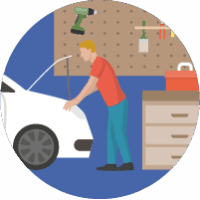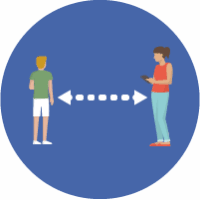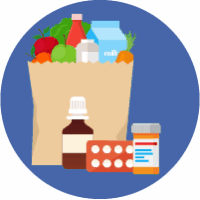
Making Social Distancing Work in Everyday Life
On March 16, state and federal government officials took strong steps to try to protect the public’s health and slow down the spread of the coronavirus (COVID-19). Governor Inslee announced an emergency proclamation that requires the immediate two-week closure of all restaurants, bars, and entertainment and recreational facilities in Washington, as well as additional limits on large gatherings. The order will be in place through March 31 and could be extended longer. President Trump also issued recommendations for Americans, titled ”15 Days to Slow the Spread.” The guidance strongly encourages social distancing, including avoiding social gatherings in groups of more than 10 people. This is good advice, from the highest level, for people who are still considering gatherings or meeting with others.
So, what do these social distancing mandates and guidelines mean for everyday life? Despite the inconvenience, it means we all need to do our part to protect ourselves, our loved ones, and our neighbors from a potentially life-threatening disease. Here is a breakdown of the social distancing and self-care practices you can take to help fight the disease:

Stay Home as Much as Possible
Take advantage of the beautiful spring weather with at-home activities like getting an early start on your garden, going for a walk or bike ride, or doing some spring cleaning projects in your home or garage.

Avoid Gathering in Groups of People
Many young adults and youth could have the virus, with little to no symptoms, and unknowingly spread it to others. It’s best to avoid optional travel, shopping trips, and social gatherings at this time.

When Working from Home is Not an Option
If it is reasonable for you to work from home, please do. If working from home is not an option, practice safe distancing and self-care practices such as:
- Getting plenty of sleep, being physically active, managing your stress, drinking plenty of fluids and eating nutritious food.
- Avoiding touching your eyes, nose or mouth.
- Washing your hands often and thoroughly with soap and water for at least 20 seconds or use an alcohol-based hand sanitizer (with at least 60-95% alcohol) if you can’t wash.
- Using good respiratory etiquette. Cover your coughs and sneezes with a tissue and put the used tissue in a waste basket. If you don’t have a tissue, cough or sneeze into your upper sleeve, not your hands.
- Routinely cleaning all frequently touched surfaces in the workplace, such as workstations, countertops, and doorknobs.
- Arranging your work schedule, workspace, and work duties to minimize close contact and maintain a 6-foot distance between one another.
- Staying home when you are sick.

Help Kids and Teens
Help kids and teens following social distancing guidelines so they don’t spread germs to one another by avoiding play dates, sleepovers, or parties. Instead, plan fun indoor and outside activities to do together, as a family, and encourage your kids to stay connected to friends and family by phone, video chat, text, email, letter, or other forms of remote communication.

Get Groceries Delivered
Try using a grocery delivery or pick-up service rather than going to the grocery store. Most grocery stores have a online shopping option and will deliver your groceries to your car or home. If need to physically go to the store, remember to practice safe distancing and self-care practices.
Social distancing will not be easy for anyone. However, it is our best defense against spreading COVID-19 to others. As humans, we are social by nature. Connecting with others brings us joy and comfort. Think about ways you can maintain connections, despite it being from a distance. Can you drop off a meal or order groceries for an elderly neighbor? Are you checking in with loved ones regularly by phone? Do you have books or craft ideas to share with other parents? Do you know about a community resource that can help a person in need? Let’s not let physical separation prevent us from taking care of each other emotionally. We are at our best when we work to solve problems together!
